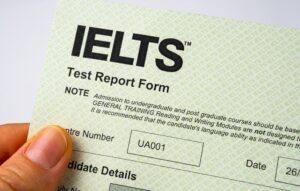
KUALA LUMPUR, 14.12.2021 – The future of higher education is evolving with the introduction to NFT, or non-fungible token, and metaverse.
Non-fungible token, or NFT is a distinctive, digitized, and encrypted token fabricated and stored using blockchain technology. The rarity and originality of the digital assets determine how valuable NFTs are.
Some key characteristics of NFT are:
- Every NFT is different
- NFTs are not replaceable with other tokens
- An NFT is more valuable if it is scarce
The existence of NFT is a game changer to the artistic integrity of artists who are mainly based online. This places their artwork at risk of mass distribution without the artist’s permission. Now, their authentic digital assets can be free of copyright infringement because they can price, distribute, and allow customers to buy and own the digital asset.
 Image source: Pexels
Image source: Pexels
Artists, filmmakers, photographers, game developers, and fashion designers sell their work on the NFT marketplace. They potentially earn up to millions of dollars in crypto-currency selling digital collectibles of their own works.
Now, NFT is branching out to higher education, where students, educators, and institutions can use NFTs for the betterment of the industry.
Evidence Of Lifelong Learning
With NFT, a student’s learning moments can now be captured, stored, and used as ‘experiential’ evidence. This will prove that a person has indeed experienced the hands-on aspects of a course and not just have high academic grades.
This can include the first time a salesman closed a deal, the first surgery of a surgeon, a pilot’s initial flight, and more. These learning moments can be crucial to companies that want to make sure the people they’re hiring are as skilled and experienced as they claim to be.
Micro-credentials For Transparency
Certificates are issued as an indicator of a student’s skills in a particular area. However, it is getting increasingly complex to verify one’s skills with the creation of false credentials.
Higher education institutions can issue certificates as NFTs. This simplifies the process of validation as all diplomas, degrees, and PhDs can be issued by universities and stored by students in a digital space to be used as an educational profile.
Smooth Transition To Showcase Transcripts & Records
Up until today, the most certain way to validate one’s educational history and qualifications is by contacting the institution that gave out the credentials.
For instance, high school seniors in the United States must pay the fees to have their test scores sent to the college they are applying for. Some employees must contact their alma mater for their employers to verify their college transcripts.
This method will soon be obsolete, as NFT can make it a hassle-free transition. Everything in a students’ records – grades, achievement, transcripts – will be fully owned by them in the form of a credible educational profile token.
Content Creators Get The Credits & Royalty Fees They Deserve
Educators can create and sell educational content to universities through the form of NFT. This allows them to receive the royalty they deserve.
For example, a textbook author will only receive the profit from their first sale. NFT allows them to add in an option that includes royalties from secondary sales.
Mark Cuban, investor of NFT platforms and a judge on Shark Tank (American business TV show) felt that NFT’s best application is on textbooks.
“They allow digital textbooks to be easily resold but more importantly they allow publishers and authors to collect royalties for every resale. Forever,” Cuban said.
The metaverse has a lot of potential in the higher education industry as well. ‘Metaverse’ is a virtual world that users can shop, socialize, and participate in leisure activities using their avatars. As metaverse makes its way into education, students will have a cyber-physical campus experience.
Some of the advantages of metaverse in education are:
- Accelerates online delivery of courses
- Allows international students and educators to meet virtually
- Virtual classes and campus activities
You can read more about the advantages of metaverse in education on our website.
In the next few decades, NFT and metaverse will be no stranger to the education industry. What’s left is how fast they will be integrated to universities worldwide.
Can’t get enough of blockchain and metaverse? We have more articles to feed your curious minds:

Jocelyn Cheng
Jocelyn Cheng (JC) is an INFP writer seeking to spread inspiration and spark connections through her words. Her dedication to writing has gifted her with an ability to write for multiple platforms (e.g., website, social media, newspaper, magazine, etc) in different fields, namely Education, Travel, and Lifestyle. JC personalizes her works by adding a touch of her own experience into the mix whenever she can to relate to her readers. A self-proclaimed poet and currently a freelance writer, she's working on an untitled poetry book at home while juggling between writing for Eduloco, dancing, and keeping her only plant alive.





